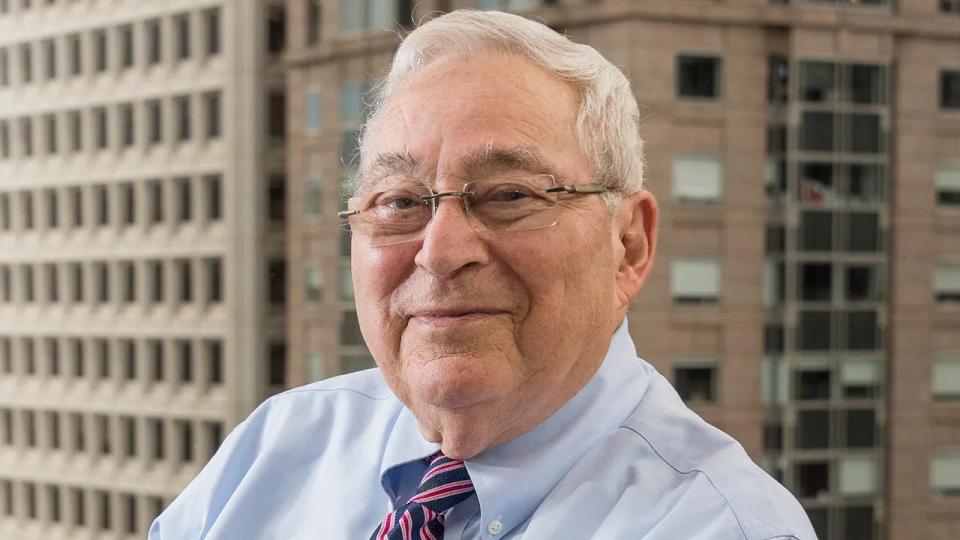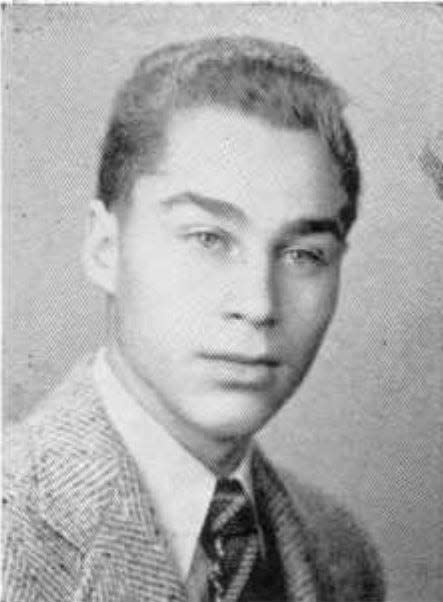Richard Rosenberg rose from Fall River's working class to the height of financial success
Richard Rosenberg was back in Fall River, had flown in from his home in California. He had spent years building a life across the country, and had returned with his family for a quick visit and an event. And Fall River is a city of 90,000 people where you’re somehow always running into people you know.
His younger son Peter said while Richard was out getting some groceries, Richard saw an old friend from his days growing up in Fall River in the late 1940s. His old buddy hadn’t seen him in decades and asked Richard what he'd been up to.

Richard Rosenberg was at the time, a celebrity in the business world — the man who essentially invented bank marketing, who created an iconic campaign for Wells Fargo and eventually became that company’s vice chairman, who helped launch the MasterCard, who became the CEO of ailing Bank of America and reversed its fortunes to create a financial powerhouse. He had risen from Fall River to become one of the most powerful financial executives in the country, and a generous philanthropist. His old friend didn’t seem to know any of this.
“And my dad just said, ‘Oh nothing much, pretty much the same,’” Peter said.
“He didn’t boast about his success at all.”
Saving history: From churches to mills, these 13 places in Fall River are at risk of losing historic value
Richard Rosenberg: From rags to riches
Rosenberg died on March 3 at the age of 92, leaving behind his wife, Barbara, sons Michael and Peter, and a legacy of financial and personal success. But he started out in much more humble circumstances.

He was born in 1930 to Charles and Betty Rosenberg. A city directory at the time has the family living on President Avenue near Chestnut Street. During the Great Depression, the family struggled financially and a series of retail shops Charles started failed. Throughout World War II, with their house taken and no work in Fall River, Rosenberg’s father left to work in the shipyards of New York City while Betty and Richard lived with her parents.
“Neither of his parents were terribly well-educated. And when his father lost the job where he had been doing pretty well, psychologically he didn’t recover from that,” said E. Susan Garsh, Rosenberg’s cousin and a notable former Superior Court judge.
Bernard Taradash grew up with Rosenberg in the city’s small Jewish community. “We went to the temple together,” Taradash said. “The Jewish families knew each other. There were always some Jewish people who were involved in the affairs of the city.”
But Taradash said while many were doctors, were connected to city politics or had other prominent careers, Rosenberg’s family wasn’t rich or connected. By 1948, the year Rosenberg graduated from Durfee High, the family lived in a small home on Farnham Street, his father and mother both working as salesmen in clothing stores. “Don’t let me overstate it,” Rosenberg said in an oral history compiled by the University of California Berkeley. “You never missed a meal, but in many respects, you were always feeling as a second-class citizen in that community in which we lived.”
Paying for a tourism study: Fall River mayor grants $670k in ARPA funds; some wonder if it will be money well spent
Rosenberg's careers, from the Navy to the heights of financial success
While working his way through college at Suffolk University, Rosenberg was influenced to join the Navy, serving through the 1950s — a move that changed his life. He went to Officer Candidate School in Newport, R.I., and saw action in Korea and Vietnam; the latter, years before the U.S. escalation. The Navy changed him as a man. When given the chance to be the ranking officer on deck of a ship underway, he felt the responsibility of having people’s lives in his hands.

 Yahoo Autos
Yahoo Autos 